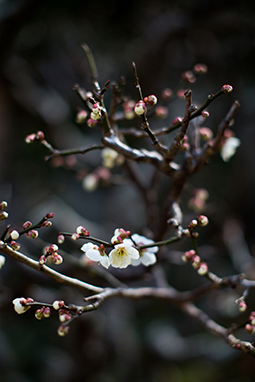
From newspapers and magazines to advertisements, we hear how a product is sustainable (or not) and why we should (or shouldn’t) use it to add sustainability to our lives.
As members of a global society, we need to pay attention and adapt our lives to the realities of climate change, diminishing resources, and an increasing world population.
But what does sustainability really mean? And how does one decide what is sustainable?
A dictionary definition of sustainable is: “A system that maintains its own viability by using techniques that allow for continual reuse”. This means living within our means; not spending more than there is in nature’s account.
Ideally, we should even set some aside for future endeavours, adventures and emergencies. Sustainability experts Peo and Satoko Ekberg like to say: “Don’t take more than you can give back. Only take from above ground”.
But in a world that is often focused on quick fixes and easy answers, it can be difficult to decide exactly how to implement sustainability on a personal level, much less on a national, or even global, one.
Below are a few suggestions to get you started.
What is it made of?
Renewable, recycled and natural materials are pivotal in a world that has limited resources. Emerging and established economies are realising that renewable resources for energy, building materials and manufacturing need to be found.
Using resources for quick growth and convenience is tempting, but it leaves our future compromised at best.
Consumers can help by purchasing products and supporting endeavours that create either something new from something old, or something that will grow again. Or they can support a project that taps into naturally recurring resources, such as the sun and wind.
How is it made?
In this context, sustainable means that workers—from the lowest paid employee to the highest-ranking officer—take home a wage after a day’s work in a safe environment.
For the consumer it means trading hard-earned income for a well-made product.
The chief executive officer of Remei AG, Patrick Hohmann, said his firm began their organic farming partnership with cotton growers in India and Africa for this reason.
“Today, I think the consumer is interested in knowing that the company has honoured its people correctly, that agriculture has not simply made use of the earth, but is rejuvenating it. Sustainability has to become fashionable. And I think the consumer is right if he buys that”, Hohmann said.
How long will it last?
Try counting how many times the product or item can be used or reused. Disposable is no longer viable. While it may be handy to simply toss out a shopping bag or wrapping paper, such convenience comes with a hidden and expensive price tag.
The Japanese concept of mottainai (meaning “what a waste”) reminds people to consider the inherent value of an item, no matter how big or small, before throwing it away.
Thinking it through before making a purchase, or even investing, may seem onerous at first, but the benefits are amazing.
What effect will its use have?
The Iroquois, a native American people, made decisions based on the impact that results would have seven generations later.
Those 140 years may seem impossibly long, but such foresight and thoughtfulness is the origin of many traditions that happen to be sustainable.
Items that are made from bamboo, wood, lacquer or ceramic are created to last for generations.
Practices such as satoyama, a farming method that combines forestry with agriculture on the lower slopes of mountains, creates a beautiful life without overtaxing or damaging the environment.
Cultivating a sustainable mindset isn’t difficult. It’s also not complicated to start leading a more sustainable life. In fact, such a life can be quite beautiful and comfortable.
As Peo Ekberg is fond of saying: “Living sustainably doesn’t mean suffering”. It just requires a bit of thought.
Ami-kumi Strainer
Bring a touch of nature to your home with an ami-kumi basketry strainer that is hand woven from the matatabi vine. A beautiful and practical addition to any kitchen, it also makes an excellent (and sustainable) gift.
For more ideas and inspiration, visit our revamped website: www.ecotwaza.com
For more sustainable home ideas and bonus points, please email us mentioning BCCJ ACUMEN at: info@ecotwaza.com




